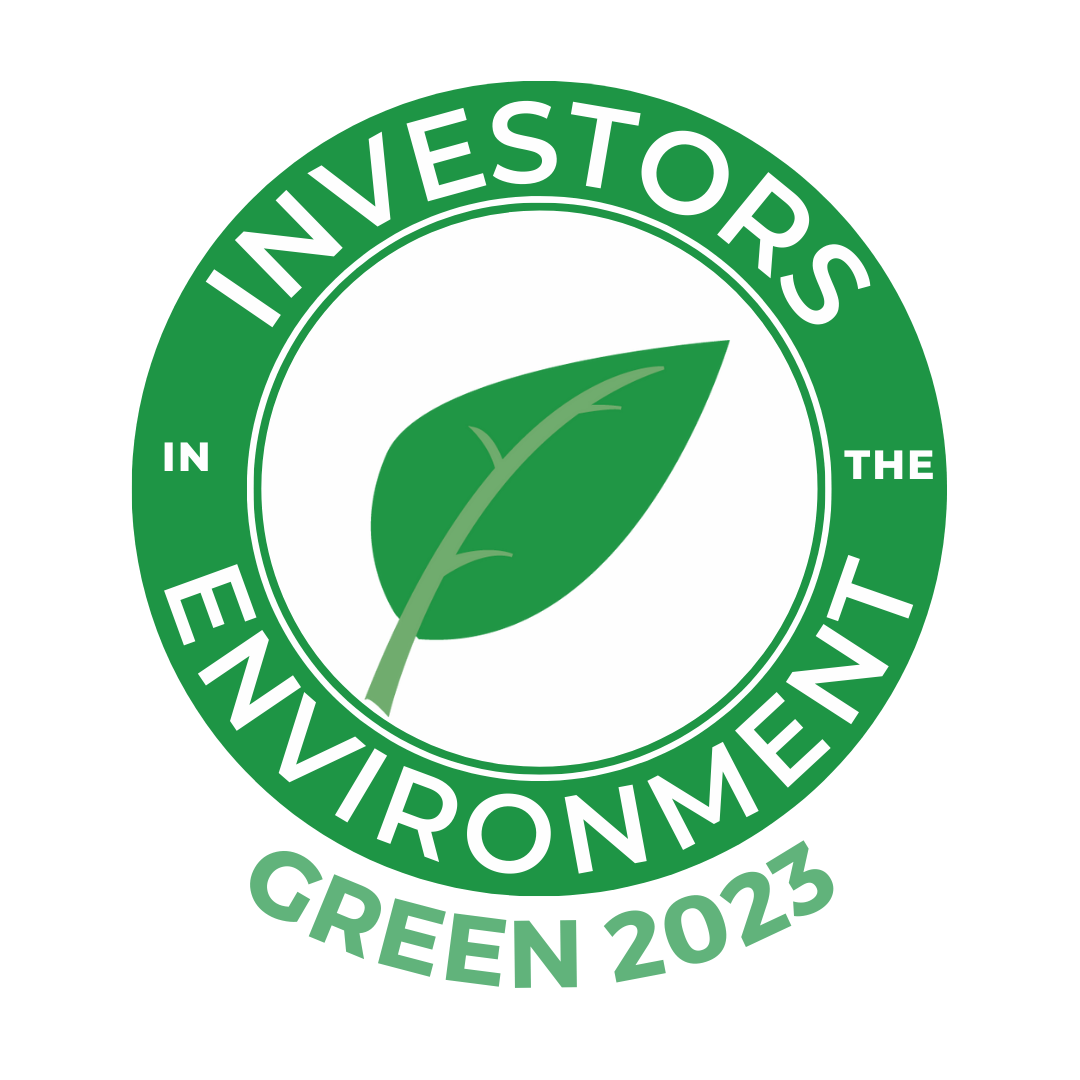This is where we drill into the day to day, and the contributions that we can all make to reduce consumption, minimise waste and engage in the “least harm” mindset. Our Environment Committee meets every month and consists of ten team members from across the Estate with the objective to improve our knowledge, monitoring and overall impact.
Less is more
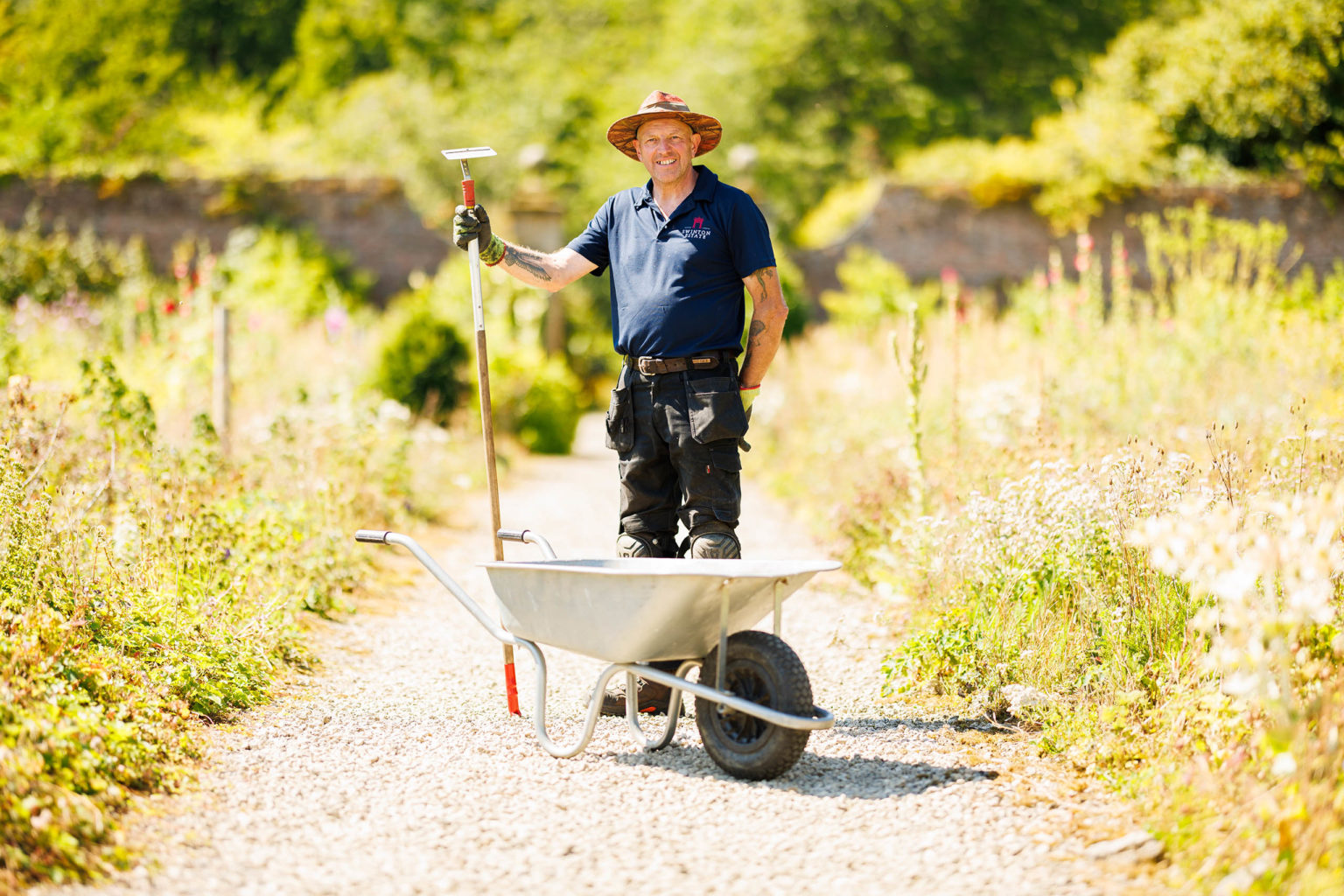
Local produce
With over 9,000 acres of hill farms on the Estate, a deer herd in the Parkland and a four acre Walled Garden, we have a plentiful source of local produce. Over 40% of the ingredients on our menus are delivered from the Estate gate to plate. When so much of our produce arrives by wheelbarrow to the kitchen door the food miles are almost zero, and beyond that we source most of our other ingredients from local Yorkshire businesses. Twice a year, the chefs from our four kitchens are taken on a training session with our local forager to help identify the wild edible ingredients growing in the Parkland and beyond. We are committed to reduce our food miles further though and we are exploring several options at the moment (watch this space!).
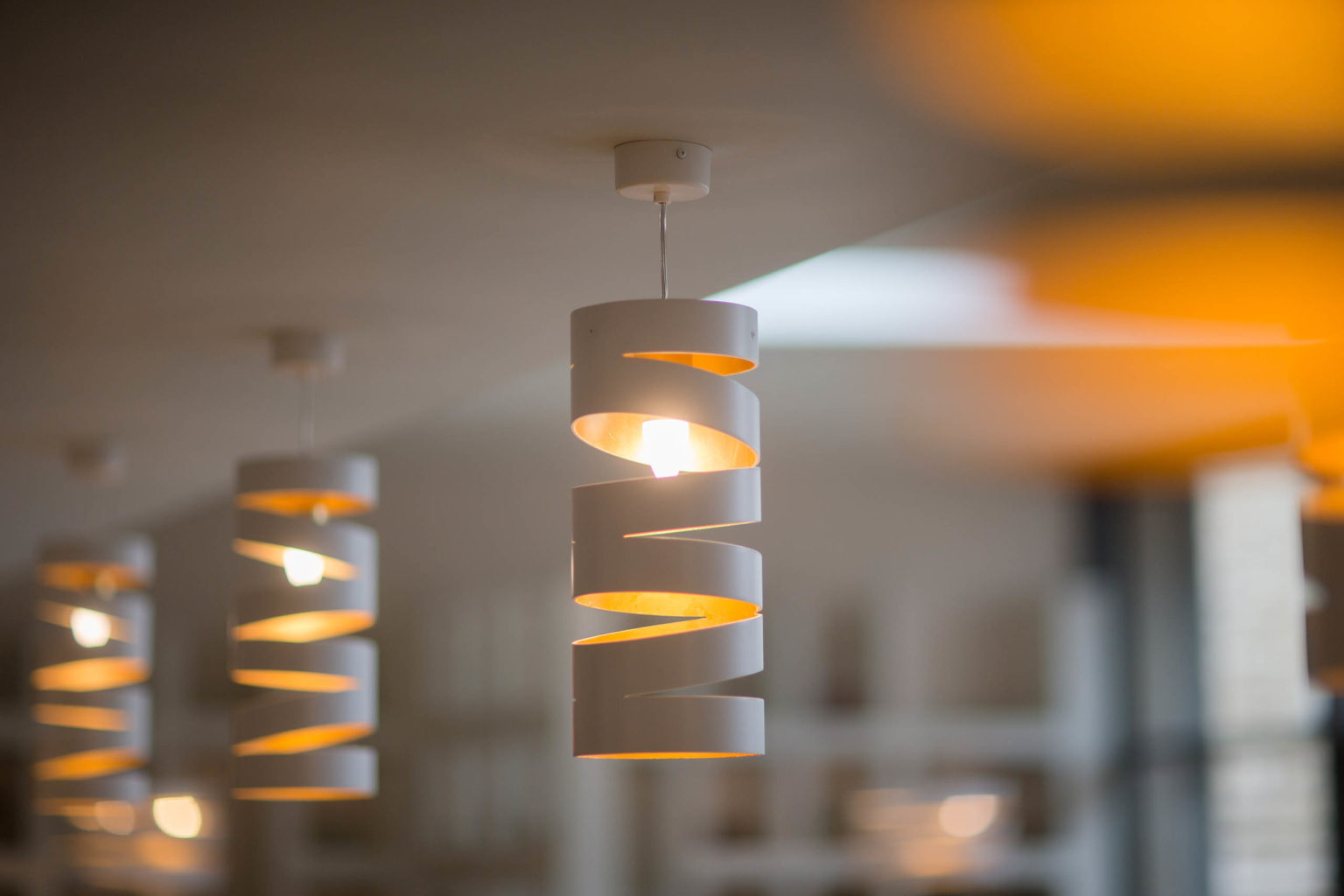
Power consumption
Our power consumption is reduced in a number of ways. We have an Electric Voltage Optimiser serving Swinton Park Hotel, Swinton Cookery School and the Country Club, which reduces our general consumption from 240V to 220V before anything is consumed. Our towel washing policy is an “on request” basis from our guests and the majority of light bulbs in the hotel and cottages are LED. At Swinton Bivouac there are no light bulbs at all in the Meadow Yurts and Tree Lodges – outdoor lighting is mostly solar and indoor lighting is either candles or a very small number of rechargeable bulbs. As we refurbish properties on the Swinton Estate we are now able to invest in insulation and eco sources of heat such as air source.
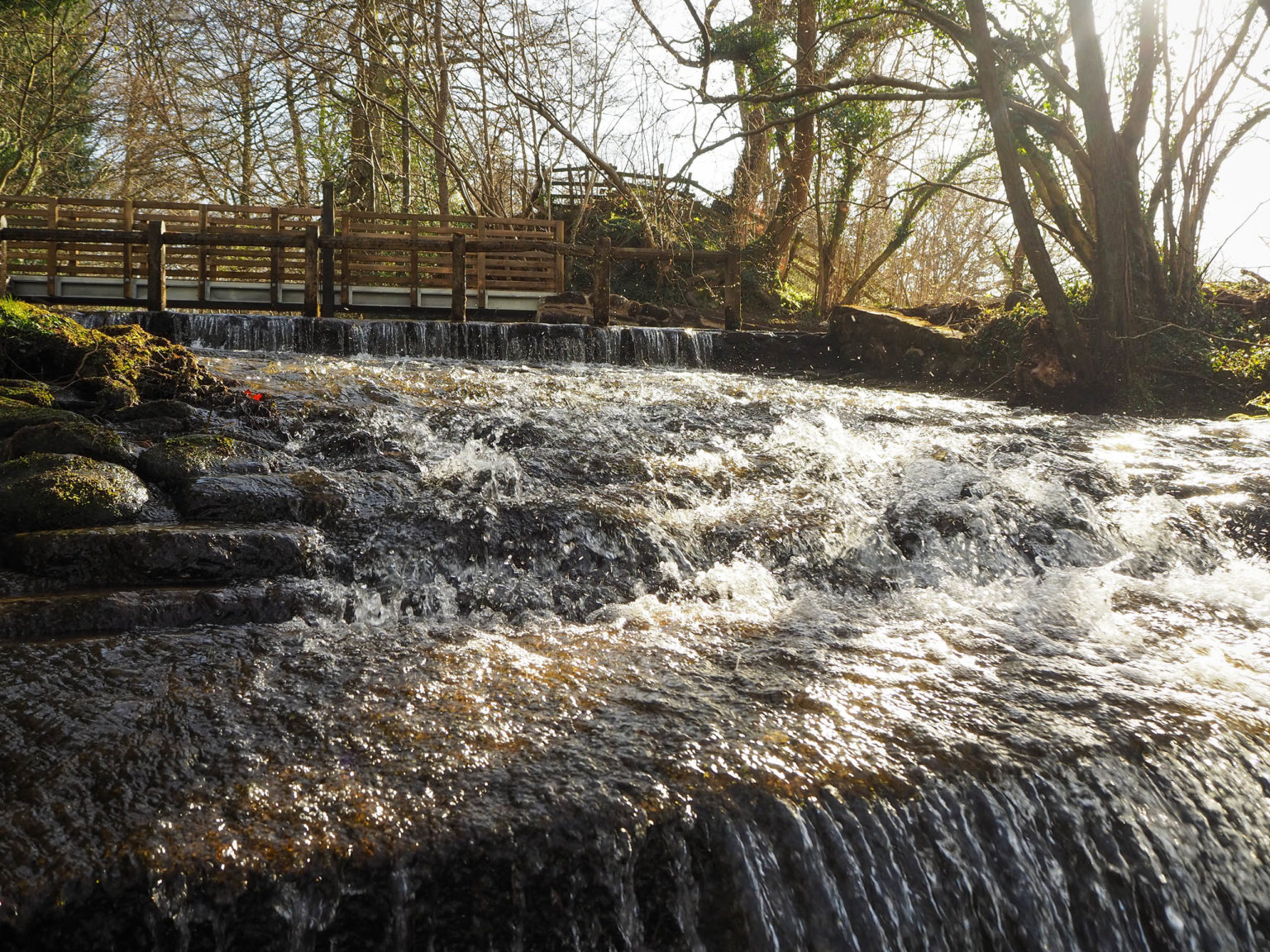
Reducing harmful chemicals
We also limit the use of chemicals that could cause harm to the environment. Within the spa, the UV water purifying system reduces the use of chlorine to an absolute minimum and across the Estate all our printed brochures use FSC paper. Organic principles apply to the cultivation of the produce grown in the Walled Garden, such as keeping the use of weed killers to a minimum, using sheep’s fleeces to control weeds and release nitrogen into the soil, and organic straw bales to grow tomatoes in. At Swinton Bivouac, where our waste water is filtered by a reed bed, we have a grey water system and use environmentally friendly detergents and cleaning products.
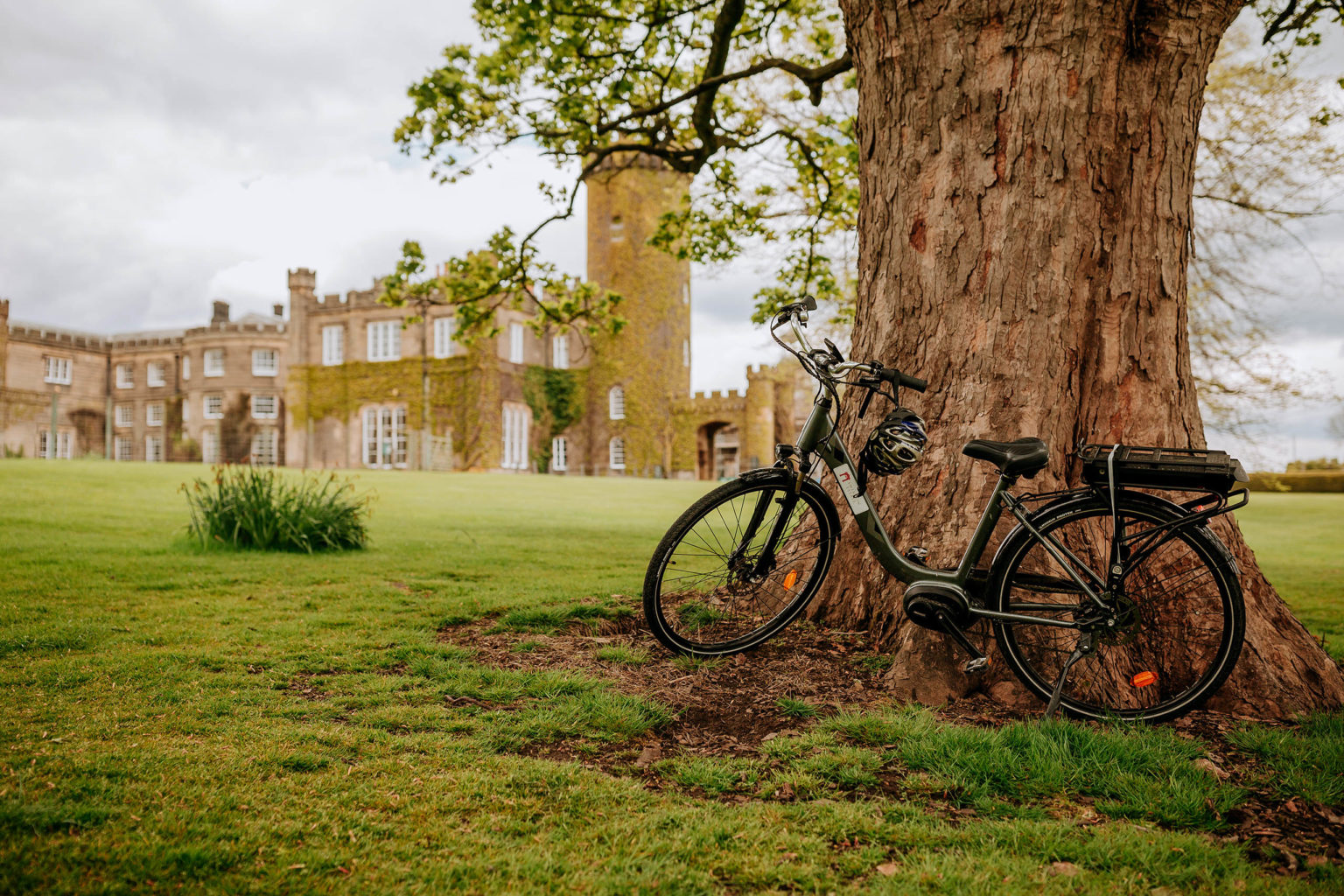
Transport
Living in a rural setting that is as beautiful and remote as Swinton comes at a price in the sense that public transport is almost non-existent. It is almost impossible not to drive, but we do our best to minimise the impact of this. We have recently switched a number of Estate vehicles over to electric power, and we have installed twelve high speed charging units to encourage visitors use their electric vehicles to travel to us. We also have battery powered and regular bikes available for guests who want to explore the Estate at their leisure, and the local YorBus route provides a minibus service within the local area.
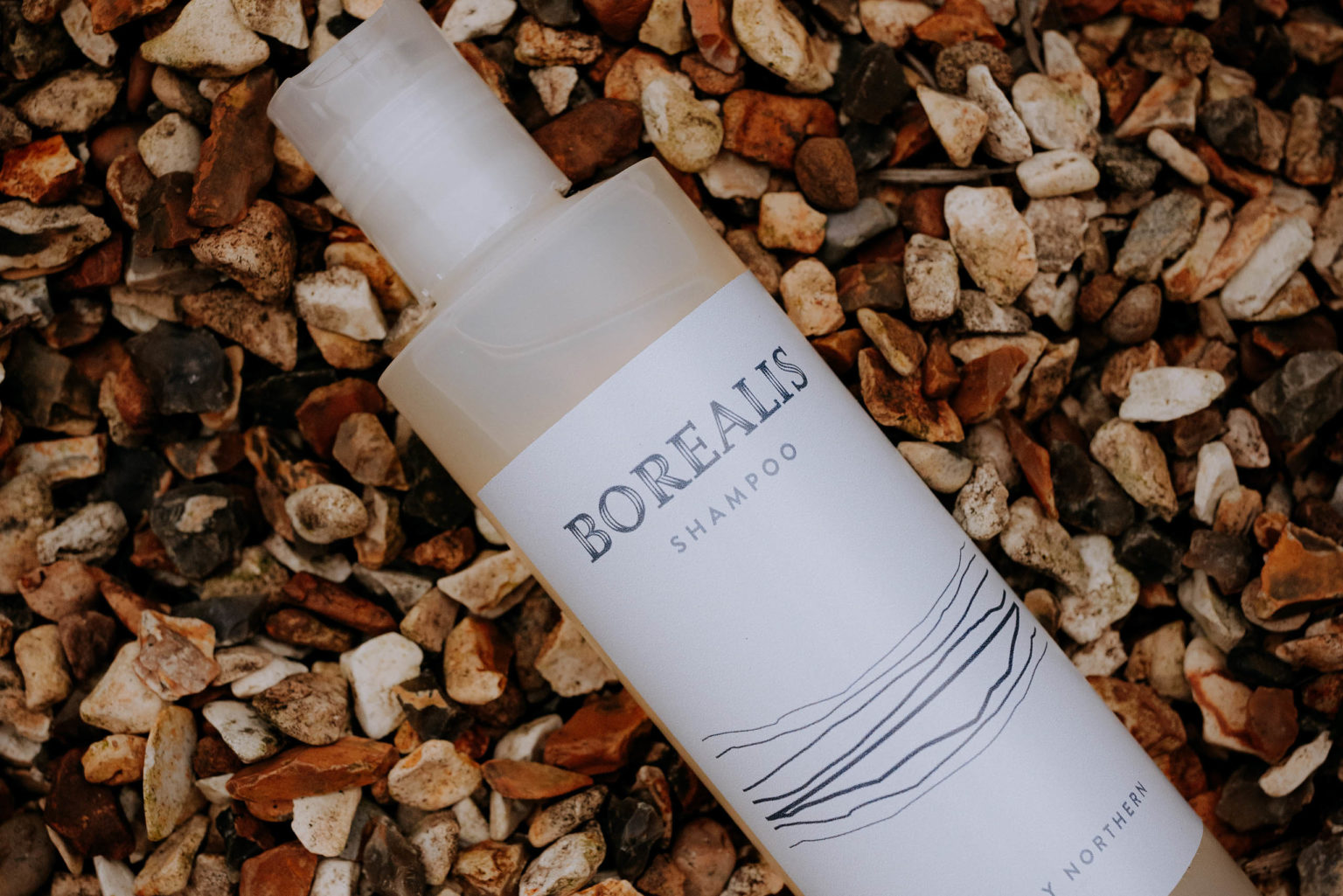
Reducing harmful plastics
We limit the use of products that are harmful to the environment, such as plastics (that are produced by burning fossil fuels) and cause further environmental damage when we seek to dispose of them. Within the design of our furnishings we use natural fibres such as wool, preserved moss and cork, with fabrics and pens made of recycled plastic bottles. We have our own filtration system for table water, which is served in glass bottles to completely avoid the use of plastic and our Borealis range of hand and body products is environmentally safe and provided in refillable recycled bottles. Visitors to the spa are given flipflops which are washed and reused, rather than single use synthetic slippers.
Leave less behind
Waste, unfortunately, is a significant part of our footprint at Swinton and over the years we have evolved our processes to deal with the problem in a number of ways. Within the kitchens at Swinton we separate out our food waste and this is then collected and turned into biogas via anaerobic digestion. From used coffee grounds we grow mushrooms and our vegetable peelings are given to our goats ‘Bivvy and Wacky’. What remains as general waste is then processed to create electricity within Yorkshire, instead of going to landfill. Working with our external partners we compact our cardboard and along with our office paper is then shredded to create fuel pellets that are sold for use in biomass boilers. They also remove our used cooking oil and this is then turned into bio-diesel.
Where possible single use plastic is not used in deliveries by our suppliers, we ask for packaging to be from recycled stock. We return plastic bottles and as part of our overall waste management service which is subsequently recycled further.
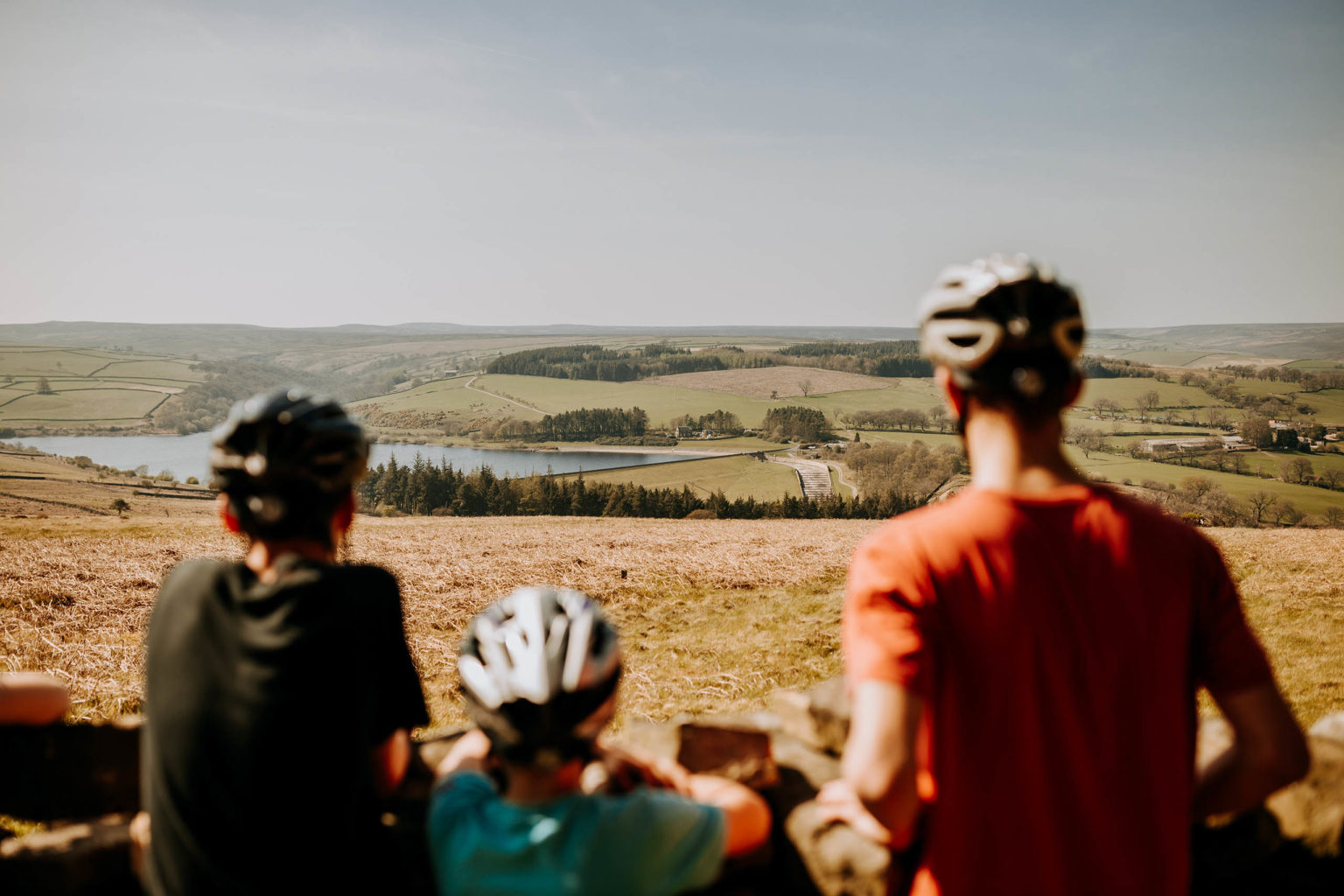
Value what we have
Activities and education: The Swinton Estate has become an established destination for good practice for experiences and educational activities that work hand in hand with our natural resources. These develop an appreciation for and awareness of the landscape.
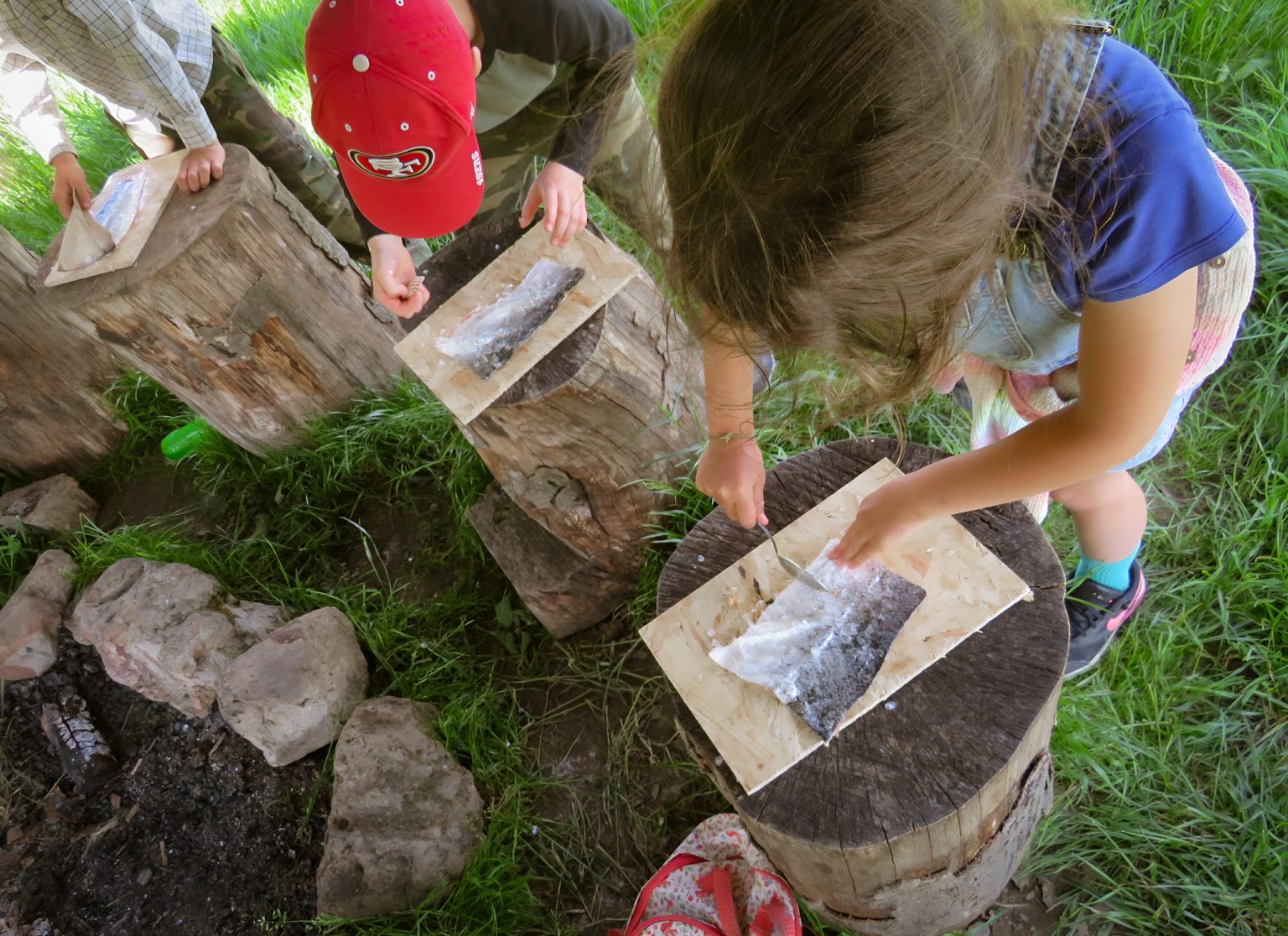
Get outdoors at Swinton Bivouac: At Swinton Bivouac, a busy and regular Woodland School provides outdoor fun and education for local and visiting children and there are several Geocache locations nearby and further afield on the Estate. The Detox and Wim Hof retreats create off-grid and mindful experiences.
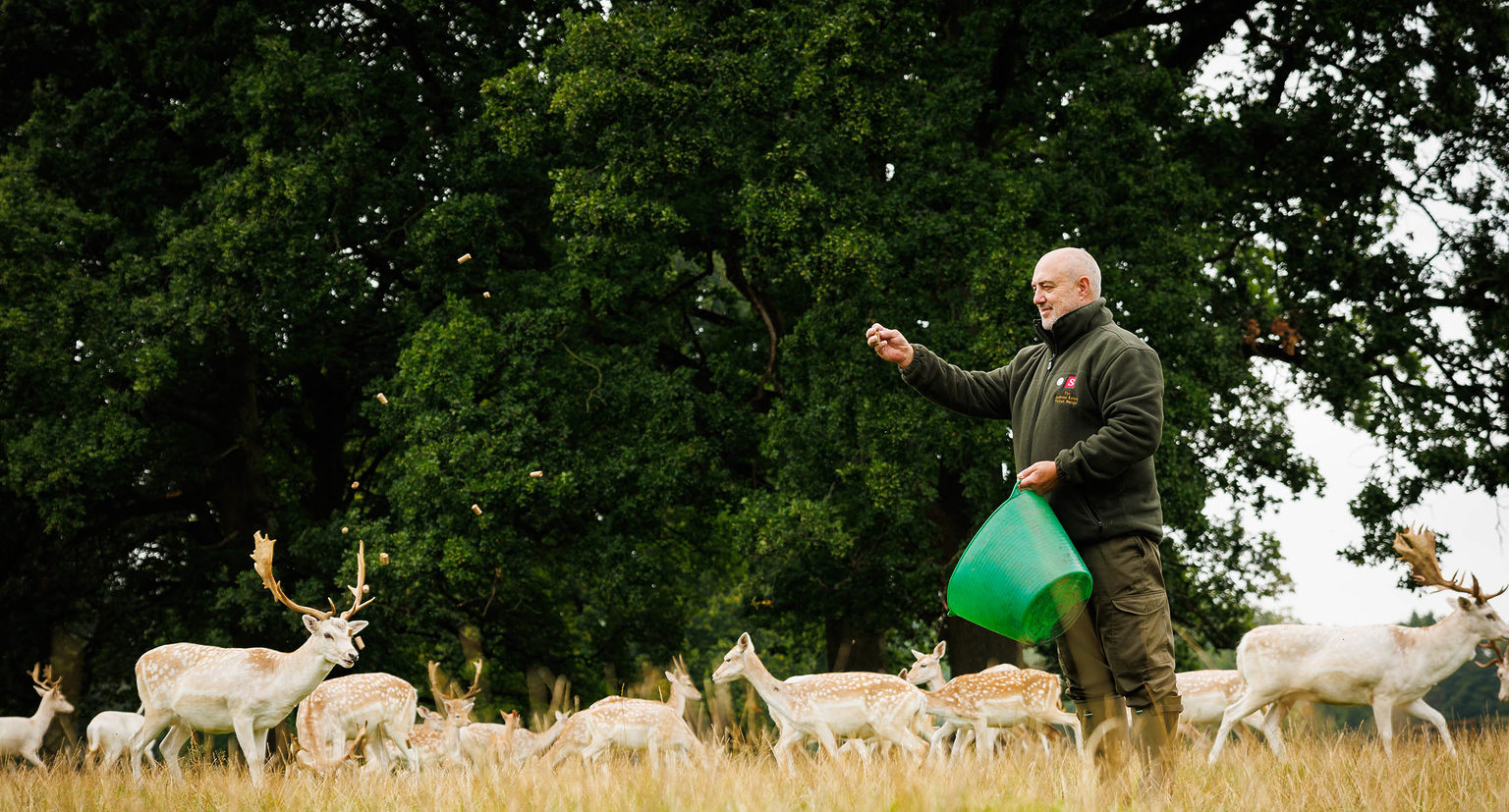
Parklands and gardens: Within the Parkland, the lakes and gardens have been restored to provide miles of beautiful walks, with a Woodland Wellness hammock clearing, Barefoot Path and Wild Swimming lake. The parkland is also a venue for Garden Lunches and Foraging Days. Hotel guests enjoy visits to the Deer Park with the Estate ranger to see the fallow deer herd, and tours of the plant room and woodchip store at the biomass boiler.
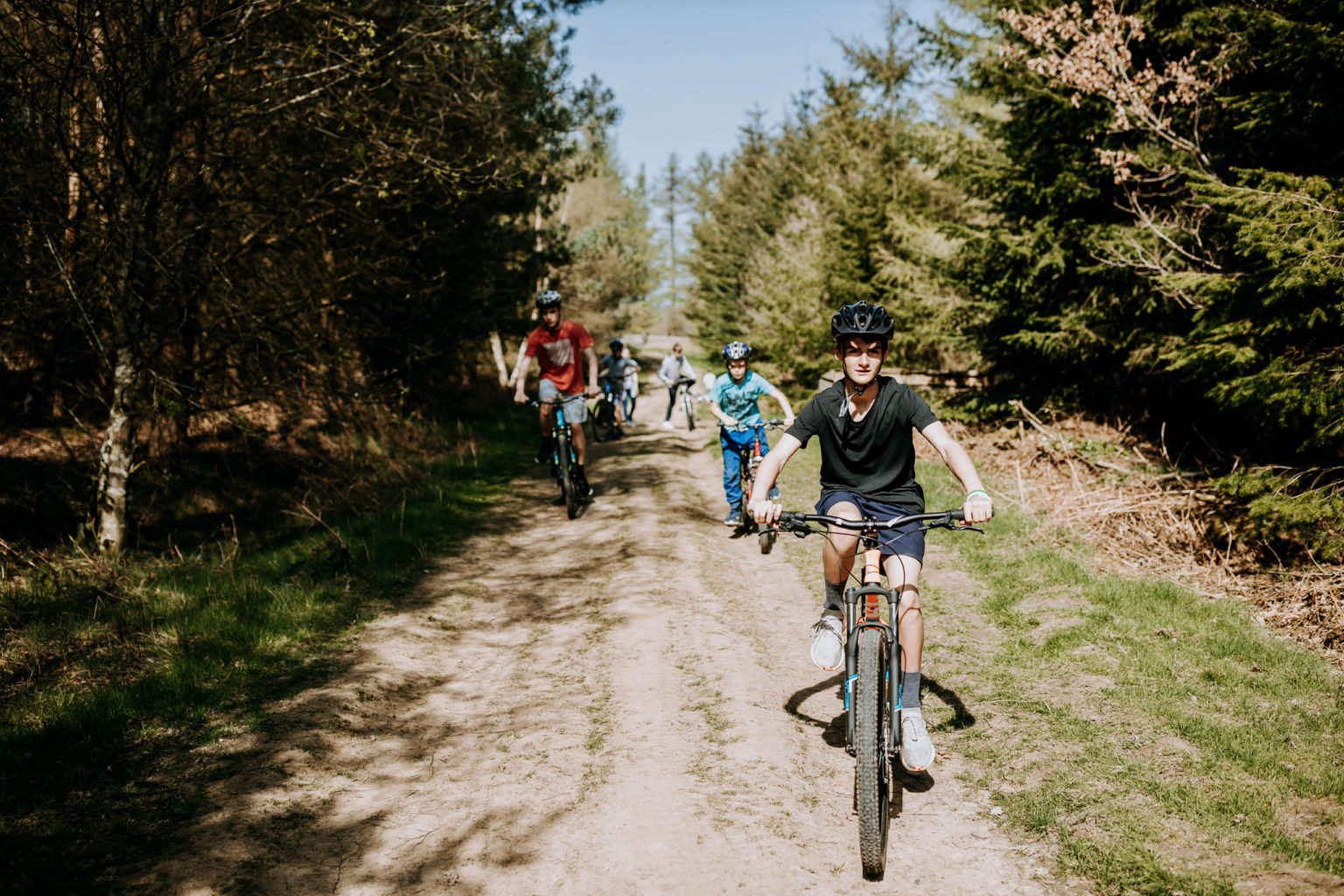
Walks, cycling and trails: Across the Estate there are over 60 miles of footpaths, many of which feature in the AllTrails collection of Estate routes. There is also a bike track in the Druid’s Temple plantation, with push bikes and electric bikes available for hire at Swinton Bivouac and the Estate shop.
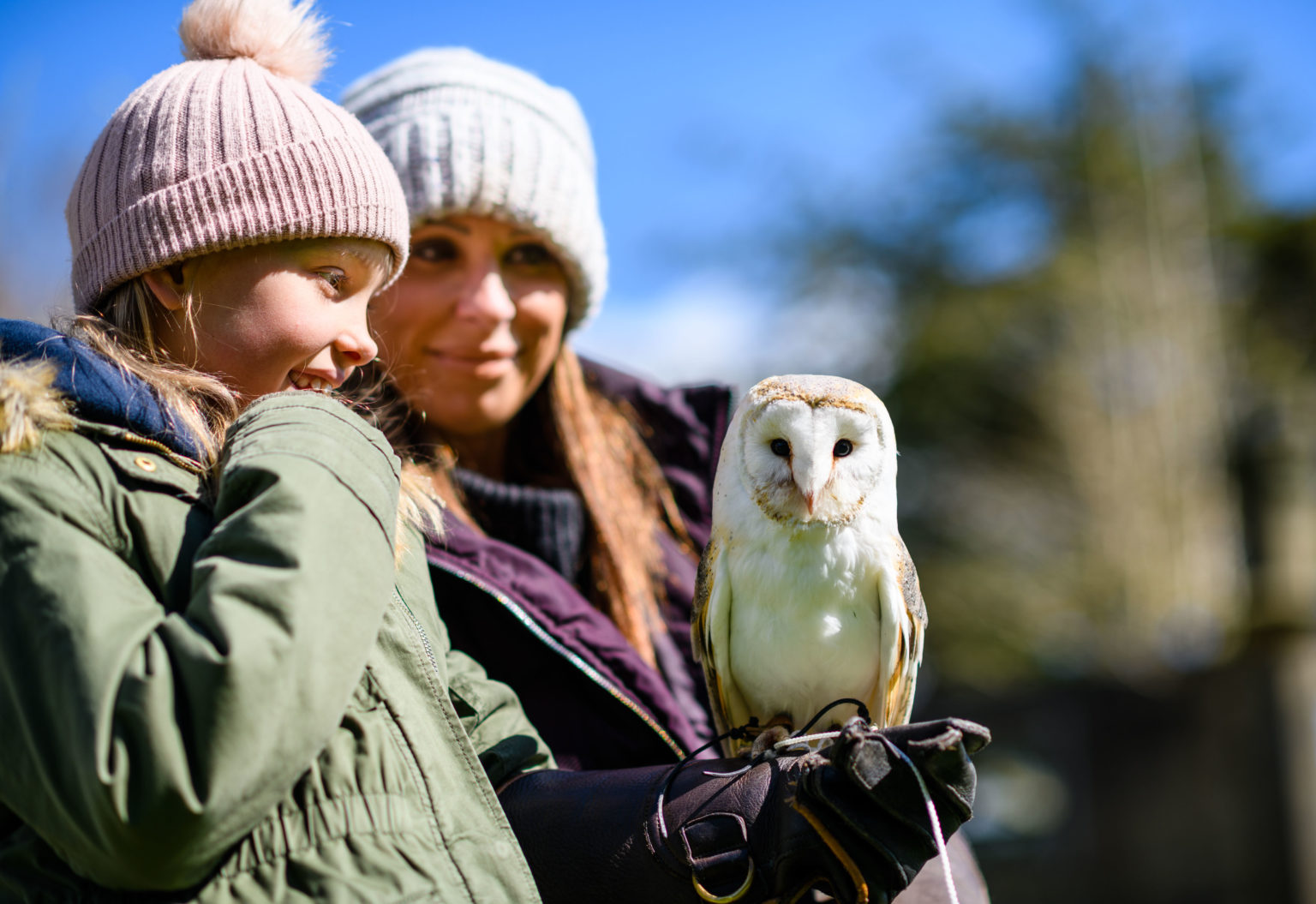
Hands-on activities: Spending time in the countryside amounts to more than taking in the view. The Estate provides the backdrop to many activities, all of which create opportunities to be at one with the elements while mastering a skill or activity. These include our Birds of Prey falconry centre, clay pigeon shooting, fishing, cycling and bird watching.
For sustainability enquiries, please contact the Estate Office on 01765 689224 or email sustainability@swintonestate.com
